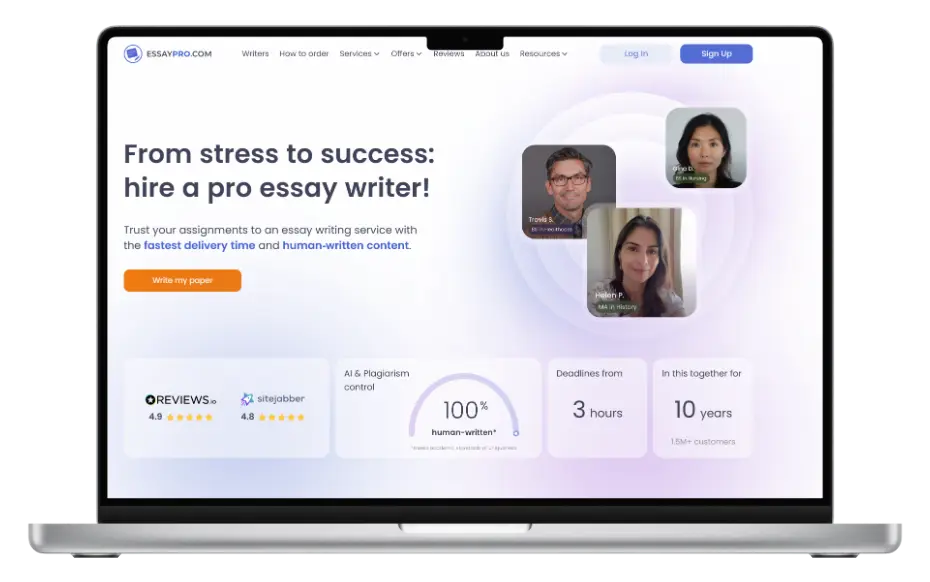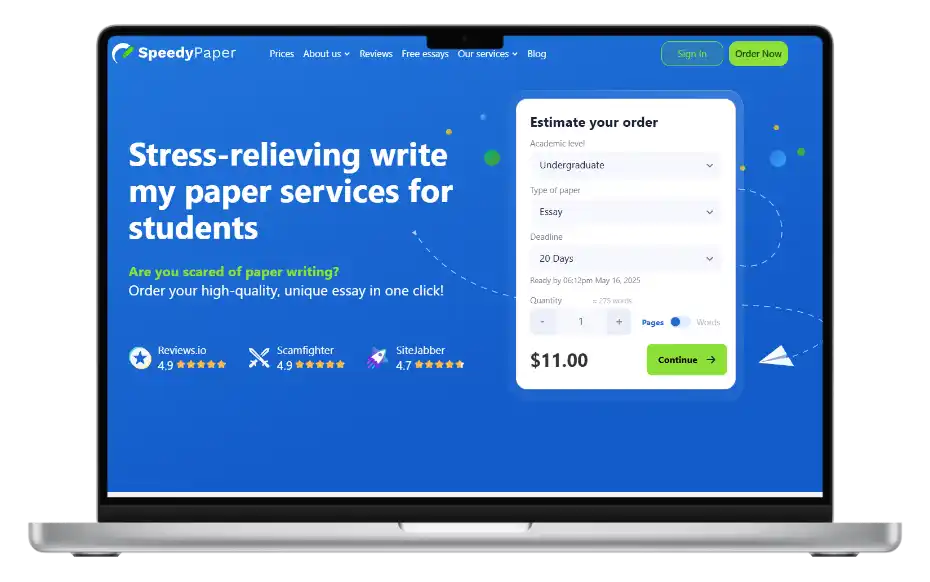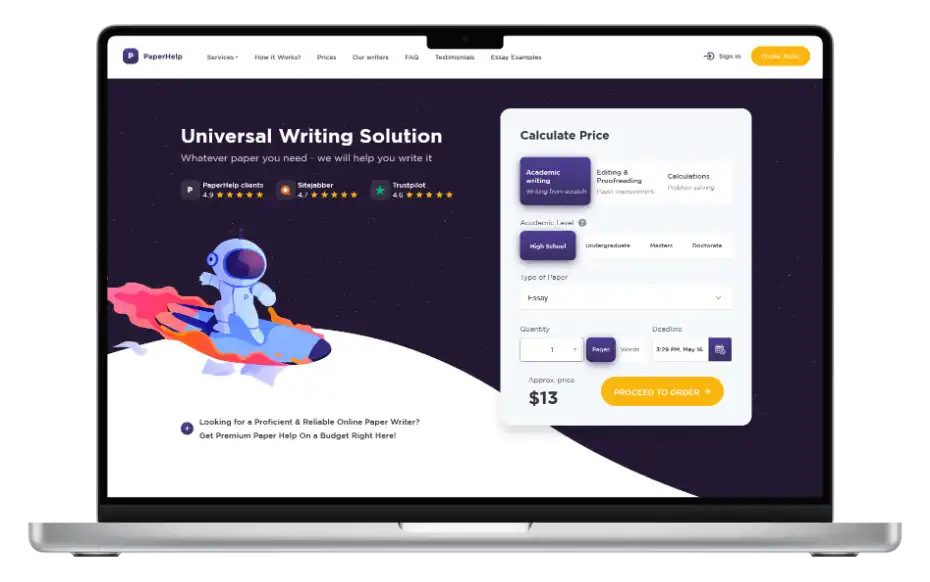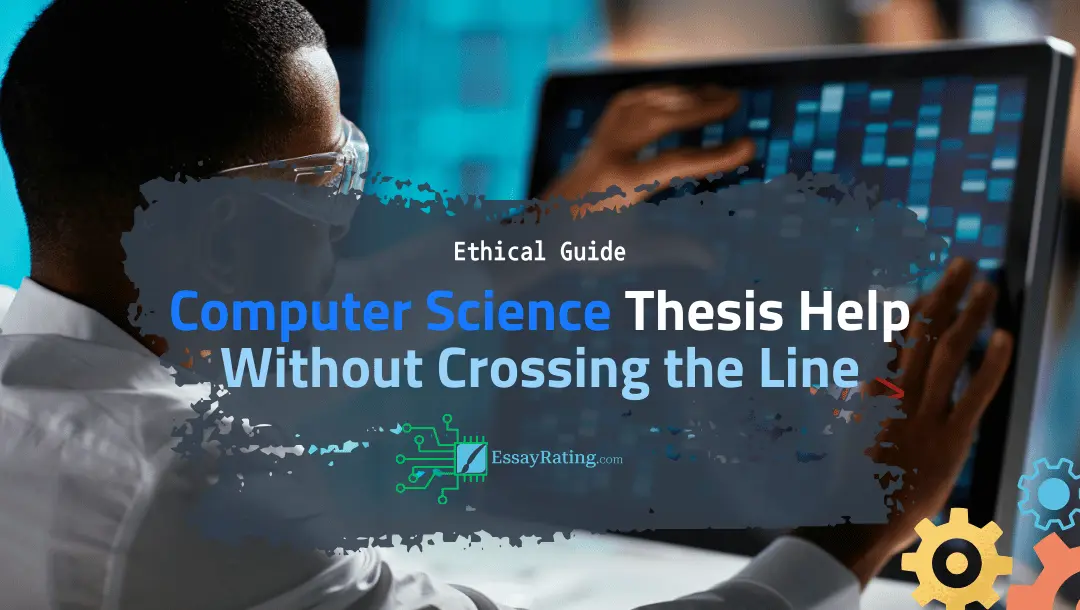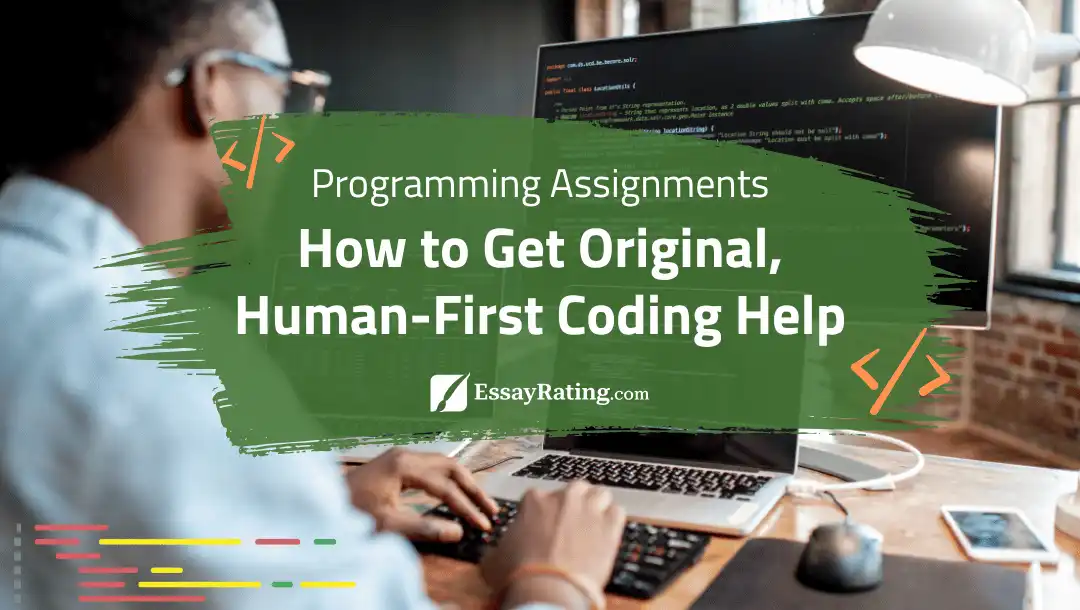Computer Science Thesis Writing Help (2026): Proposal,Build, Defense (Ethical Guide)
Last updated: January 10, 2026 • 8 min read
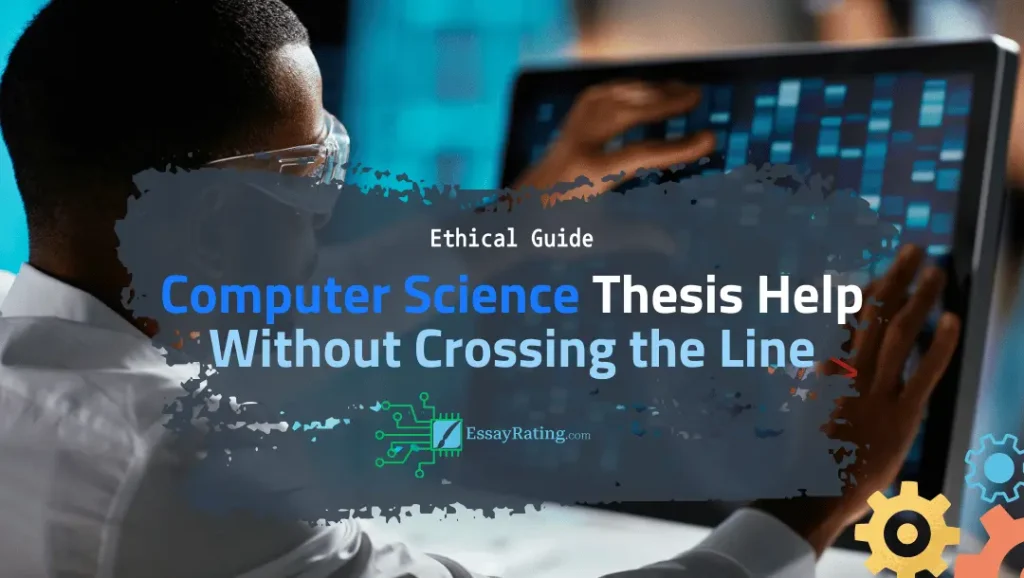
Short answer: You can get legitimate help on a CS thesis when it’s about editing, planning, debugging, experiments, and documentation — not ghost-writing your entire project. Ask for deliverables you can defend: a clear proposal, reproducible code with tests, an experiment log, and a short explanation you understand.
We’ve watched students stall not because their idea is weak, but because the work isn’t packaged: no proposal structure, messy repo, no test harness, results that aren’t reproducible. When we ordered small, time-boxed “thesis assists” this year, the best outcomes came from transparent scope: consultation + documentation, not one-click “done.” Below is a practical map of what ethical help looks like at each stage – and how to brief it.
What’s Ethical vs Not (for CS Theses)
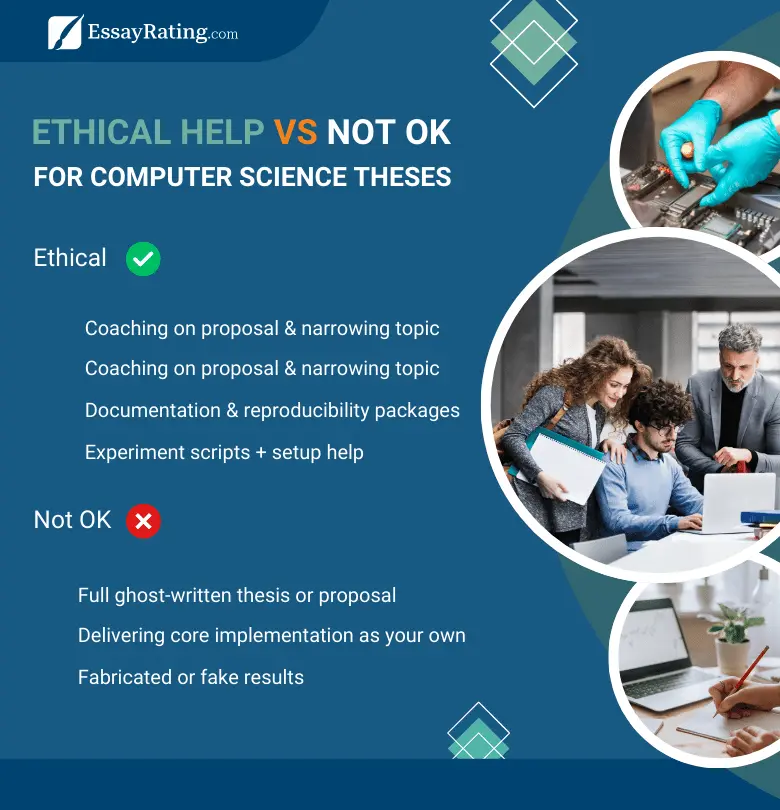
| Ethical help (safer) | Not okay (risky) |
|---|---|
| Proposal coaching, literature mapping, narrowing the research question | Submitting a fully written proposal as your own |
| Design review, pseudocode, test planning, dataset choice advice | Delivering the complete core implementation for you to submit |
| Debugging, refactoring, adding unit tests and README | Hiding outside contributions; passing off others’ code as yours |
| Experiment scripts, logs, and reproducibility packaging | Fabricated results or unverifiable figures |
| Language/style editing and LaTeX formatting | Ghost-writing the entire thesis text |
Thesis Workflow & Expected Deliverables
Use this as your checklist. A solid thesis is predictable when each stage outputs something tangible you can show and explain.
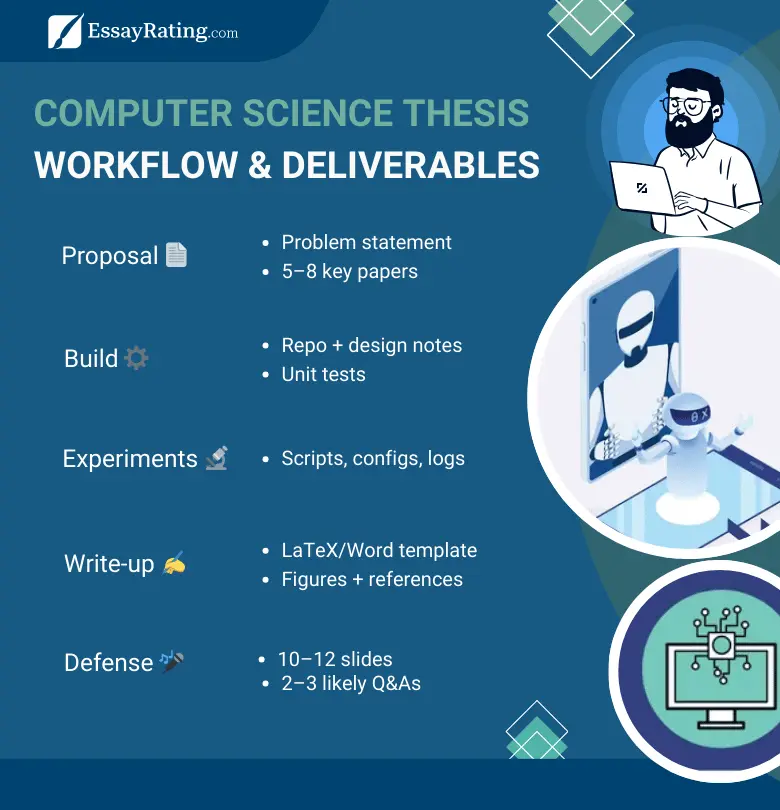
| Stage | Deliverables to request | Why it matters |
|---|---|---|
| Proposal | Problem statement, literature map (5–8 core papers), scope/metrics, risks | Aligns with advisor early; prevents scope creep |
| Build | Design notes, pseudocode, repo structure, minimal unit tests | Makes the code teachable and reviewable |
| Experiments | Run scripts, config files, seed control, experiment log (CSV/Markdown) | Lets you reproduce and compare runs |
| Write-up | LaTeX/Word template (IEEE/ACM), figure pipeline, references tidy | Saves time on formatting and figure chaos |
| Defense prep | 10–12 slide deck outline, 2–3 likely committee questions | Focuses your explanation under pressure |
Reproducibility Package (What to Hand In)
| Item | Item | Check |
|---|---|---|
| Repository | src/, tests/, data/ (or link), scripts/, README | One-command setup & run instructions |
| Environment | requirements.txt / environment.yml / Dockerfile | Version-locked; GPU/CPU notes |
| Data card | Source, license, splits, preprocessing steps | Ethics & privacy OK |
| Experiment log | Hyperparams, seeds, metrics, timestamps | At least 3 runs for the main result |
| Figures | Scripted plots, not manual edits | Rerunnable from raw results |
How to Brief a Consultant (So Help Stays Ethical)
- State your policy. “No ghost-writing. I need coaching, debugging, tests, and formatting help only.”
- Share context. Proposal draft, syllabus/rubric, advisor comments, and deadlines by stage.
- Define deliverables. E.g., “1-page problem statement,” “unit tests + README,” “experiment script + log.”
- Ask for explanations. A 5–7 line rationale per major decision (model/algorithm, data choice, metrics).
Team note: We often ask for a short “defense paragraph” at the end of the README that explains the algorithm choice and trade-offs. It’s gold in committee Q&A.
LaTeX vs Word, IEEE vs ACM (Formatting Reality Check)
| Choice | Pros | Cons | Best when |
|---|---|---|---|
| LaTeX | Beautiful math, stable floats, BibTeX/Zotero | Learning curve; template quirks | Heavy equations, ACM/IEEE targets |
| Word | Low barrier, easy collaboration | Figures wander; styles drift | Light math; dept. requires .docx |
| IEEE template | Strict, ubiquitous | Rigid layout rules | Engineering departments, conferences |
| ACM template | Scholarly look, clear sections | Style police on references | CS research with ACM venues |
Plagiarism & Originality (Text + Code)
| Aspect | What to do | Why |
|---|---|---|
| Text | Quote/cite properly; keep drafts and notes | Shows authorship trail |
| Code | Write core logic yourself; log commits; avoid public gists | Protects originality and privacy |
| AI tools | Disclose if used; keep a human explanation | Transparency with advisor/policy |
| Similarity checks | Document any checks run (text & code) and results | Evidence for reviews/appeals |
Final Verdict
A strong CS thesis is reproducible, explainable, and yours. Use expert help to clarify scope, harden the repo with tests, run clean experiments, and format the paper — then own the core logic and narrative. Package your work so you can defend every decision calmly.
FAQ • Students Ask Us These in 2026
About the Team
Related Articles
Essay Services You May Like
